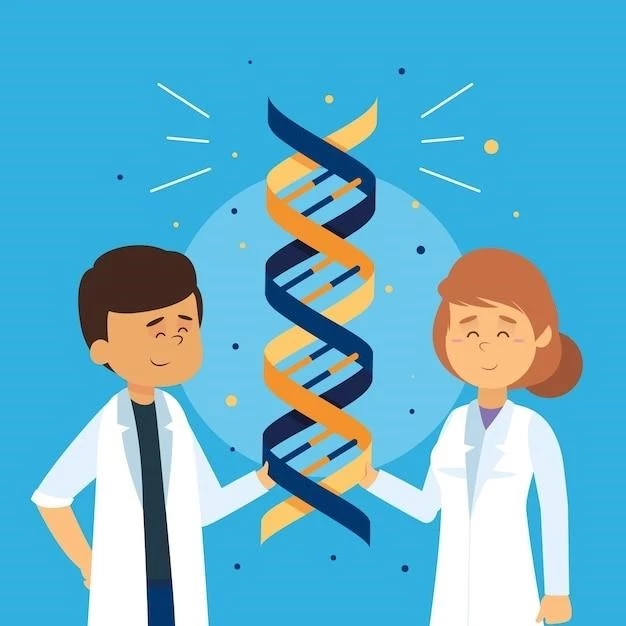Introduction
Research has shown that genetic factors influence aggressive behavior, with MAOA gene playing a vital role. Learn about Monoamine oxidase A deficiency.
Monoamine oxidase A (MAO-A) deficiency is a rare disorder mainly affecting males, leading to behavioral problems, including impulsive and aggressive behavior. It is associated with disturbances in neurotransmitter breakdown and neural responses to stress.
MAO-A plays a crucial role in degrading serotonin and catecholamines in the brain, impacting synaptic transmission and behaviors. The deficiency is linked to the gene encoding MAO-A, affecting the breakdown of neurotransmitters, potentially leading to abnormal behavior patterns and cognitive functions.
Individuals with MAO-A deficiency may experience mild intellectual disability and difficulties in impulse control, resulting in aggressive or violent outbursts. Studies on MAO-A deficient mice have highlighted maladaptive defensive behaviors, shedding light on the genetic and neurological underpinnings of aggression.
Diagnosis of MAO-A deficiency involves detecting elevated urinary concentrations of monoamines and their metabolites. The disorder’s characteristics include night terrors, tremors, stereotypical hand movements, and occasional body twitches, along with aggressive tendencies.
Understanding the impact of MAO-A deficiency on behavior and cognitive functions is critical for developing effective treatment strategies and providing appropriate support for affected individuals.
Overview of Monoamine Oxidase A Deficiency
Monoamine oxidase A (MAO-A) deficiency is a rare disorder primarily affecting males, leading to behavioral issues such as aggression and impulsivity. It is linked to disturbances in neurotransmitter breakdown and neural responses to stress.
Role of MAOA Gene in Aggression
Studies have shown that the MAOA gene influences aggressive behavior, with mutations leading to Monoamine oxidase A deficiency. This gene encodes the MAO-A enzyme responsible for neurotransmitter breakdown, impacting neural responses to stress and contributing to behavioral abnormalities.
Understanding Monoamine Oxidase A
Research reveals MAOA gene’s role in aggressive behavior due to its impact on neurotransmitter breakdown and neural responses.
Function of MAO in the Brain
Monoamine oxidase A (MAO-A) enzyme, encoded by the MAOA gene, plays a vital role in degrading neurotransmitters, affecting neural responses to stress, and influencing behaviors linked to aggression and impulsivity. This deficiency results in disturbances in serotonin and catecholamines breakdown, highlighting its significance in synaptic transmission and behavioral regulation.
Clinical Presentation
Monoamine oxidase A deficiency primarily impacts males, leading to early behavioral problems such as aggression and impulse control difficulties.
Symptoms of MAOA Deficiency
Individuals with Monoamine oxidase A deficiency may experience mild intellectual disability, impulsivity, aggression, night terrors, tremors, and stereotypical hand movements. These symptoms typically manifest in early childhood, predominantly in males.

Diagnosis and Testing
Methods for detecting MAOA deficiency include monitoring elevated levels of certain monoamines and their metabolites in urine samples.
Methods for Detecting MAOA Deficiency
Detecting MAOA deficiency involves monitoring elevated levels of certain monoamines and their metabolites in urine samples, which can indicate disturbances related to neurotransmitter breakdown and neural responses.

Treatment Strategies
Approaches include correcting monoamine deficiency with enzyme inhibitors, precursors, analogues, and replacement therapies to manage symptoms effectively.
Approaches to Correct Monoamine Deficiency
Treating Monoamine oxidase A deficiency involves correcting the deficiency through various strategies like enzyme inhibitors, precursors, analogues, and replacement therapies to address symptoms effectively and manage behavioral abnormalities associated with the condition.
Research and Studies
Research on MAO-A gene reveals its significant impact on aggression and neural responses to stress, shedding light on behavioral abnormalities.
Studies on MAO-A Deficient Mice
Research on MAO-A deficient mice provides insights into behavioral abnormalities and aggressive tendencies associated with Monoamine oxidase A deficiency, contributing to a better understanding of the genetic and neurological aspects of aggression.
Case Studies
Documented cases reveal the impact of MAOA deficiency on behavior, including aggressive tendencies and cognitive impairments, predominantly seen in males.
Documented Cases of MAOA Deficiency
Documented cases of MAOA deficiency showcase the impact on behavior, especially aggressive tendencies and cognitive impairments, with a higher prevalence observed in males.
Behavioral abnormalities linked to Monoamine oxidase A deficiency include aggressive tendencies, impulsivity, and cognitive impairments, particularly affecting males.
Impact on Behavior
Behavioral abnormalities associated with Monoamine oxidase A deficiency include aggressive tendencies, impulsivity, and cognitive impairments, particularly affecting males.
Monoamine oxidase A deficiency primarily affects males, leading to behavioral issues such as aggression and impulsivity, often manifesting in early childhood.
Incidence and Characteristics in Males
Monoamine oxidase A deficiency predominantly affects males, leading to behavioral issues such as aggression and impulse control difficulties. These symptoms often emerge during early childhood and can impact cognitive functions.
Complications and Associated Disorders
Complications of Monoamine oxidase A deficiency are often associated with aggressive behavior, cognitive impairments, and related disorders, particularly impacting males.
Associated disorders linked to Monoamine oxidase A deficiency include mild intellectual disability, behavioral abnormalities like aggression, impulsivity, and violent tendencies, with a higher prevalence observed in males.
Expert Centers and Support
Organizations provide assistance for Monoamine oxidase A deficiency, offering support for individuals living with the condition. Accessing expert centers can help navigate the challenges associated with this rare disorder.
Related Disorders Linked to MAOA Deficiency
Associated disorders linked to Monoamine oxidase A deficiency include mild intellectual disability, behavioral abnormalities like aggression, impulsivity, and violent tendencies. These issues tend to be more prevalent in males and can impact cognitive functions.
Current Research Findings
Studies on MAOA enzyme function continue to provide insights into its role in aggressive behavior and neurotransmitter breakdown, contributing to a better understanding of behavioral abnormalities.
Latest Discoveries on MAO-A Enzyme Function
Recent research on MAO-A enzyme function reveals insights into its role in aggressive behavior, neurotransmitter breakdown, and the genetic and neurological underpinnings of behavioral abnormalities associated with MAOA deficiency.
